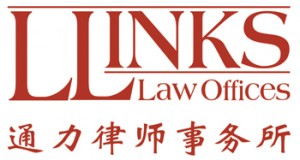In practice, certain customary payment arrangements in cross-border acquisitions may encounter obstacles under the PRC legal framework for overseas direct investment, where relevant procedures or even special arrangements are often required.
Earnest money
At the outset of a transaction, the buyer and seller usually execute a letter of intent, which sets out the core agreed commercial terms. Once such a letter is executed, the seller often requires the buyer to pay a sum of “earnest” money within a short period to: (1) demonstrate its good faith; and (2) ensure that the seller can be compensated if the transaction ultimately fails to close (particularly for a reason attributable to the buyer).

Partner
Llinks Law Offices
In practice, with a view to saving the time required to send money abroad, and avoid foreign exchange procedures, a buyer may first consider arranging to pay the earnest money by using offshore funds (e.g., funds of offshore affiliates, etc.). If offshore funds are not available, and the buyer needs to arrange to send onshore funds to pay the earnest money, it cannot send the same abroad as part of the investment amount as, at such time, it has not yet carried out the approval/filing procedure for overseas direct investment (ODI procedure).
One solution is to pay the earnest money as “start-up cost”, a special channel available under the overseas direct investment regulatory regime to Chinese enterprises to arrange for sending funds abroad before completing the ODI procedure. But its scope of application is limited solely to costs directly related to an overseas direct investment project, and has clear limitations in terms of maximum amount and time for use.

Partner
Llinks Law Offices
However, as laws do not expressly state whether earnest money falls within the scope of start-up costs, in practice, banks will determine the nature and purpose of the funds to be sent abroad by reviewing the parties’ specific agreement on the earnest money, and decide whether they can be remitted as a start-up cost.
If banks determine that the earnest money is a performance bond or bidding deposit paid by the buyer, normally it will be treated as a start-up cost. However, if banks determine that it is part of the investment amount paid by the buyer, e.g., the parties specify that the earnest money will become part of the transaction price at a certain point of time afterwards, it is likely that banks will require the buyer to complete the ODI procedure before it can remit the funds abroad. The authors recommend that Chinese enterprises consult banks on the feasibility to pay earnest money as a start-up cost before making such payment undertakings.
Adjustment of transaction price
A price adjustment mechanism is a customary clause in cross-border acquisitions. However, at the time of an ODI application, an enterprise is required to submit a definite investment amount and invest within that limit. If price adjustment occurs at the closing of the transaction, resulting in a discrepancy between the final actual transaction price and the investment amount submitted in the ODI application, especially where the price is adjusted upward and exceeds the submitted amount, the enterprise may encounter an obstacle when it pays the transaction price.
By law, if the investment amount submitted in the ODI procedure changes, it needs to apply for amendment with ODI authorities in advance. Among others, the National Development and Reform Commission (NDRC) regulations require that when the investment amount changes by 20% or more comparing with the submitted amount or changes by US$100 million or more, the Chinese enterprise is required to submit an application for amendment in advance. The Ministry of Commerce has similar requirements. Thus, the authors would recommend that a buyer pay attention to such procedural requirements when negotiating the timeline and closing conditions, keeping flexibility for performance and implementation of the terms.
In practice, if the buyer has a relatively solid expectation on the range of a future price adjustment (e.g., there is capped adjustment range in the transaction documents), it might consider proceeding on the ODI procedure with the adjusted price to leave a buffer for subsequent upward price adjustment.
If the actual price paid is less than the submitted amount, it will apply to change the submitted amount into the actual investment amount through the ODI amendment procedure after closing. The competent authorities in different regions maintain discretion on regulatory scrutiny for such amendment procedure. Therefore, advance communication with the competent authorities for specific cases is highly recommended.
Break-up fees
In recent years, in large cross-border acquisitions initiated by Chinese enterprises, the seller often requires the Chinese buyer to pay a break-up fee for failure of closing. Given that the Chinese buyer is subject to foreign exchange controls and might not be able to remit payment abroad in future, the seller usually requests the buyer to pay break-up fees immediately after signing the agreement.
There are no express foreign exchange regulations on payment of break-up fees in cross-border acquisitions, but certain publications of the State Administration of Foreign Exchange state that break-up fees triggered by the failure of a major offshore acquisition are “liquidated damages” in nature and further categorized as a payment under foreign exchange policies.
Based on this principle, an enterprise cannot pay break-up fees through the the ODI procedure, which means that break-up fees may not be paid in advance before closing (when no event of breach has occurred). Once break-up fees are triggered, the enterprise needs to apply for payment as “liquidated damages” thereafter by providing the relevant written proof on its breach of transaction documents.
To resolve this issue, some enterprises opt to arrange to remit some funds abroad as part of the investment amount after completing the ODI procedure, and agree with the seller to put such funds in escrow. If the transaction fails to be closed subsequently, the escrowed funds will be released directly to the seller, and serves as a break-up fee.
However, there is a potential risk that such approach will be held as violating Chinese foreign exchange regulations. If the enterprise ultimately fails to acquire overseas direct investment interests, and fails to repatriate the funds previously remitted abroad, it could be challenged and even penalised by competent authorities.
Cathy Huang and Kenneth Kong are partners at Llinks Law Offices

Llinks Law Offices
16F / 19F, ONE LUJIAZUI, 68 Yin Cheng Road Middle
Shanghai 200120, China
Tel: +86 21 3135 8666
Fax: +86 21 3135 8600
E-mail:




















